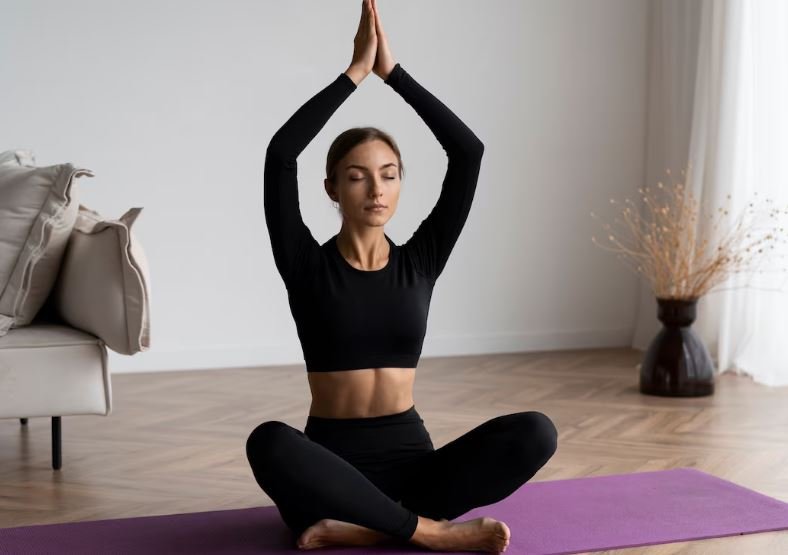
As a full person, a holistic practitioner attends to a patient’s psychological, emotional, and spiritual well-being. Instead of treating symptoms, these methods get to the bottom of health problems. They prioritize holistic health by integrating mindfulness practices, natural cures, and therapeutic interventions.
It is common for holistic practices to combine contemporary medicine with more traditional forms of healing. Some of the most common approaches are acupuncture, herbal medicines, yoga, and meditation. These methods can be used in conjunction with traditional medicine to improve health in general.
Overview of Holistic Health Practices
| Practice | Purpose |
|---|---|
| Herbal Remedies | Treat ailments naturally using plants and herbs. |
| Meditation | Reduces stress and promotes mental clarity. |
| Acupuncture | Improves energy flow and reduces pain. |
| Yoga | Enhances physical and mental balance. |
| Reiki | Promotes harmony through energy healing. |
| Biofeedback | Teaches control over physical processes. |
| Chiropractic Care | Supports spinal and nervous system health. |
| Ayurveda | Balances the body using diet and herbs. |
| Massage Therapy | Relieves tension and enhances circulation. |
| Dance Therapy | Combines movement with emotional expression. |
Remedy with Herbs
Integrative medicine relies on herbs as its cornerstone. Inflammation and stress are the targets of remedies such as chamomile and turmeric. You can help your body out with these all-natural remedies, and they won’t hurt. Herbal remedies and preventative medicine are important to many civilizations.
Meditation
To quiet emotions, one practices meditation by focussing the mind. Improving mental clarity can be achieved through everyday mindfulness practice. Concentration and anxiety are both helped by this. For complete well-being, try meditating. It’s easy and effective.
Acupuncture
Needling particular areas of the body is the basis of this traditional Chinese medicine practice. It eases discomfort and increases the flow of life force energy. Migraines and arthritis are two chronic diseases that acupuncture is frequently prescribed to alleviate.
Yoga
Moving your body and focusing on your breath are two aspects of yoga. Strength, flexibility, and stress levels are all positively impacted. Because of its harmonising effects on mind and body, yoga is a common component of holistic health. The emotional and physical benefits make it a popular practice.
Energy Healing Practices
To transfer energy into the body, Reiki practitioners use touch. It promotes harmony among one’s mental, emotional, and spiritual health. When it comes to relieving stress and promoting relaxation, many people find that Reiki works wonders.
Sensors are used in biofeedback to track how the body is working. Using this method, one can manage their stress reactions, muscular tension, and heart rate. As a tool for holistic health, it is modern.
Ayurveda
The ancient Indian discipline of Ayurveda helps to harmonise the body’s energy systems. To keep one healthy, it prescribes certain foods, herbal medicines, and practices one should do every day. Personalized techniques based on individual body types, or doshas, are the focus of Ayurveda.
Massage Therapy
Reduces muscle tension through massage therapy. Methods such as deep tissue massage alleviate pain and increase circulation. It is a common component of many people’s self-care regimens.
Integrative Exercise
Healing one’s emotions via movement is the goal of dance therapy. It helps with stress relief and emotional expression. A person’s emotional and physical health can benefit from this exercise.
Supplementing Standard Medical Care
Complementing current treatments is holistic health. Patients undergoing chemotherapy, for instance, report less anxiety after practicing meditation. Individuals can be guaranteed thorough care by combining holistic and conventional approaches.
FAQs
Q: What are holistic health practices?
A: They are methods that address physical, mental, emotional, and spiritual health as a whole.
Q: Can holistic practices replace traditional medicine?
A: No, they complement traditional treatments for comprehensive care.
Q: What is the role of herbs in holistic health?
A: Herbs are used as natural remedies to treat various ailments and promote wellness.
Q: Is yoga a holistic health practice?
A: Yes, yoga builds physical and emotional strength, reducing stress.
Q: What is Reiki?
A: Reiki is an energy healing practice that restores balance and harmony.
Q: How does acupuncture help?
A: It stimulates energy points to reduce pain and improve health.
Q: What is Ayurveda?
A: Ayurveda is an ancient Indian system focusing on balance through diet, herbs, and lifestyle.
Q: Can holistic health practices improve mental health?
A: Yes, practices like meditation and biofeedback promote mental clarity and reduce anxiety.
Q: Are holistic practices scientifically supported?
A: Many practices, like acupuncture and mindfulness, have scientific backing.
Q: Can I combine holistic practices with medical treatments?
A: Yes, combining the two often enhances overall health outcomes.
